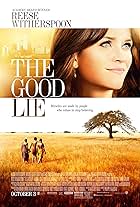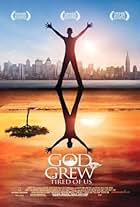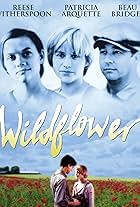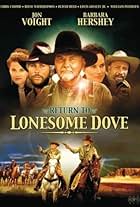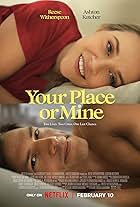In Sudan, the Arabs rule and are constantly at war with the Christians and Animists who inhabit the southern portion of this East African country. This film follows a group of of Dinka boys, a tribe of cattle herders, whom were left orphaned after their village was destroyed and their families killed in a brutal attack carried out by the Arab forces. Most of these boys are now teenagers and have been dubbed "The Lost Boys".
The filmmaker follows a group of the "Lost Boys" on their journey, as they have been accepted as refugees in the US, where they will land in Houston. Those who've been accepted as refugees gain celebrity status, as they feel (from what they've heard) that America is amazing. Making a trip from Sudan to America is like "making a trip to heaven" says the one young man. A huge party is thrown for their departure, and they are told to do Sudan well, and once they have been educated, to return to Sudan so that they can contribute to Dinka society. They are also warned not to be like "those with the baggy pants" whom are responsible for the negative stereotype of Black men, and also, no matter what happens, not to forget the Dinka culture.
You watch as the boys come from a third world country into America and how they attempt to integrate into American society, as they have gone from a place with practically nothing to this plentiful world where everything is massively overproduced and overconsumed. They are taught about cleanliness and how to use all the utilities that we take for granted on a daily basis. It is humorous at times, humbling at others.
Listening to the comments they make about Black Americans and American society/culture are quite interesting. As the film progresses you see how American culture begins to corrupt their previously humble ways of thinking.
One of the boys, Peter, is not content with working and making just enough to survive, so he up and moves from Houston to Kansas City so that he can pursue an education. When the other boys visit him, they talk about how they cannot get into any schools. The main reason they came to America was to get an education and the media is saying that the boys have been brought from Sudan for an education. This is occurring because the boys were given arbitrary ages, making them older than they actually are, preventing them from being able to enroll in high school.
The film juxtaposes images from Houston to Kansas. We watch as Peter enrolls in school, where he befriends a group of Christian conservative kids, and as Santiago attempts driving school(even though he drives without his license anyways), and works at Walmart. We see Peter struggle with high school life as he strives to make his schools basketball team, and as Santiago has trouble keeping up with work, the rent, appeasing tensions back home in Sudan, and most of all, coping with loneliness.
It comes to the point where the boys want to return to Sudan, and tell them that everything they are taught about America there is lies. "You must make it alone here, do everything alone" one of the boys says. A damning message to a Liberal Capitalist lifestyle, showing how it causes people to become radical individualists (a trend which led to the creation of both the neo-conservative and radical islamist movements). Their biggest beef with America though, is that there is no time; time is money and we don't waste a second!
Despite all this, the boys never lose their sense of Dinka culture. They celebrate Southern Sudan Liberation Day, which marks the day which the SPLA began to fight in Sudan, a fight which continues today. They also meet with other "Lost Boys" on the anniversary of their arrival in America, where they discuss their experience in America as compared to back in Sudan. When asked, one boy says that if he were able to make a living he would much prefer to live in Sudan. It is much too lonely in America he adds. They never lose their sense of community, which has been conditioned into them as part of their culture!
This film makes us question the way we live, makes us question the artificial happiness that materialism and the nature of our societies has created within us. It will also change the way I look at refugees, I will never again take for granted how hard they must work and what immigrants mean for a country such as my own, Canada. This is a wonderful film. I laughed, I cried..a very emotional journey, and a very well made documentary. 10 out of 10.




